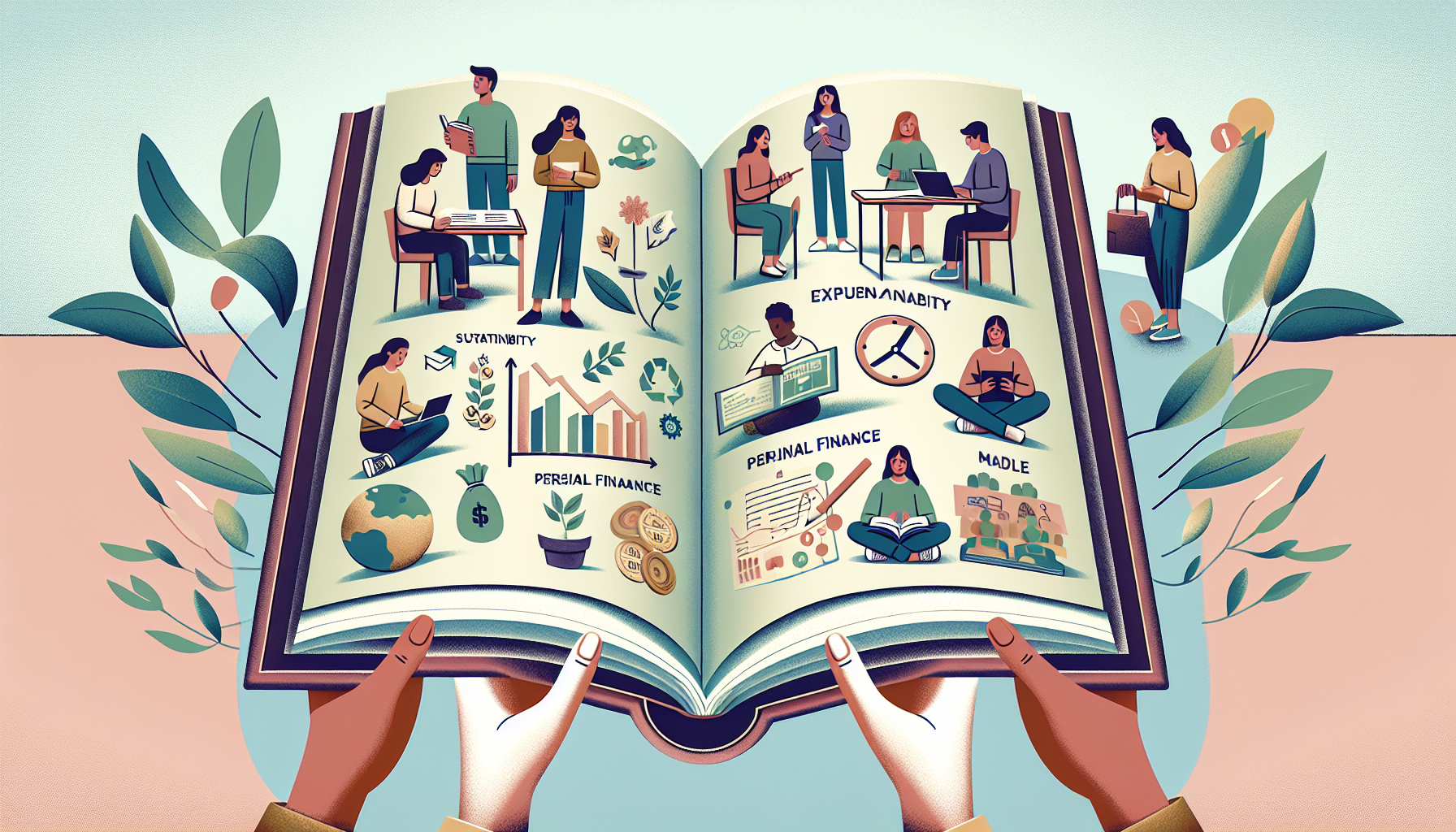If you’ve ever felt that traditional learning methods just don’t cut it, you’re not alone. Many people crave engaging, hands-on experiences that make learning stick. Experiential learning can bridge that gap, allowing you to actively participate and immerse yourself in the process.
Stick around, and you’ll discover a treasure trove of creative ChatGPT prompts designed to enhance your hands-on learning adventures. These prompts will not only spark your imagination but also help you tackle real-world problems like a pro.
We’ll explore different ways to leverage ChatGPT for interactive experiences, from simulating real-life scenarios to fostering critical thinking and collaboration. Get ready to transform your learning journey!
Key Takeaways
- Experiential learning is more engaging and effective than traditional methods, allowing learners to actively participate.
- Use ChatGPT prompts to create real-world scenarios that encourage practical problem-solving skills.
- Define clear learning goals before using ChatGPT for hands-on activities to ensure focused outcomes.
- Prompts for reflection and self-assessment help learners understand their growth and improve self-awareness.
- Collaborative prompts enhance teamwork skills, making sure every group member contributes to projects.
- Critical thinking prompts encourage deeper analysis and support developing reasoning skills in learners.

Best ChatGPT Prompts for Experiential Learning
Experiential learning is all about learning through experience, and using ChatGPT can enhance this process significantly.
Here are some effective prompts you can use to engage learners and create interactive experiences:
- “Create a detailed scenario where learners must apply their knowledge to solve a real-world problem related to environmental sustainability.”
- “Generate a step-by-step guide on how to set up a community garden project that encourages teamwork and local engagement.”
- “Design a role-playing activity where students take on different jobs in a company to learn about organizational structure and teamwork.”
These prompts facilitate interactive learning tools that engage students and encourage practical application of knowledge.
How to Use ChatGPT for Hands-On Learning Activities
To effectively use ChatGPT for hands-on learning activities, start by defining clear goals for the learning experience.
Here’s a straightforward approach:
- Identify a topic that needs hands-on engagement, such as science experiments or community projects.
- Ask ChatGPT to create a list of materials and steps for a specific project, like building a simple circuit.
- Use prompts such as: “Outline a physics experiment that teaches the principles of energy conservation and requires household items.”
- Encourage students to share their results and reflections with prompts like: “Discuss the challenges you faced in this hands-on activity and how you overcame them.”
This structured method helps foster interactive and engaging learning experiences.
Creative ChatGPT Prompts for Real-World Problem Solving
Real-world problem-solving activities are crucial for developing critical thinking skills.
Here are some creative prompts that encourage innovative thinking:
- “Devise a plan to reduce waste in a local community. List actionable steps and potential challenges.”
- “Imagine you are an urban planner. Propose a project to create more green spaces in a city and outline the benefits.”
- “Select a current social issue and brainstorm a community project aimed at raising awareness.”
These prompts stimulate creative thinking and enable learners to tackle real-world challenges using a collaborative approach.
Using ChatGPT to Design Interactive Learning Experiences
Designing interactive learning experiences is essential to maintaining student engagement.
Here’s how you can leverage ChatGPT in this process:
- Determine the learning goals you want to achieve, like improving comprehension or teamwork.
- Use prompts like: “Suggest five interactive activities for a history lesson on the American Revolution.”
- Ask for ideas on using technology: “Describe how to incorporate virtual reality in a lesson about ancient civilizations.”
- Encourage student participation by asking ChatGPT for ways to gather student input on lesson topics.
This approach ensures that the learning experiences created are engaging, immersive, and effective.

Prompts for Simulating Real-Life Scenarios with ChatGPT
Simulating real-life scenarios helps students apply theoretical knowledge in practical situations.
Here are some effective prompts you can use:
- “Generate a case study on a customer service issue, including potential solutions and outcomes.”
- “Create a dialogue between a job candidate and an interviewer, focusing on common job interview questions.”
- “Outline a crisis management scenario for a company facing a public relations disaster and how to respond.”
These prompts encourage learners to think critically and deeply about real-world issues.
ChatGPT Prompts for Reflective Learning and Self-Assessment
Reflective learning is essential for personal growth and understanding one’s learning process.
Consider these prompts to facilitate self-assessment:
- “Describe a recent learning experience and what you learned from it, highlighting successes and challenges.”
- “Identify three strengths and three areas for improvement in your recent project or assignment.”
- “Reflect on a mistake made during a learning activity and explain how it can inform your future decisions.”
Using these prompts can help learners develop metacognitive skills and foster self-awareness.
Collaborative Learning Prompts for Group Projects with ChatGPT
Collaborative learning enhances teamwork and communication skills among students.
Here are prompts designed for group projects:
- “Draft a project proposal for a community service initiative that requires input from all group members.”
- “Define roles for each member in a group project about climate change and outline tasks.”
- “Create a group discussion guide for a debate on a current controversial issue, with key points and counterarguments.”
These prompts promote collaboration, ensuring everyone has a voice and role in the project.
Developing Critical Thinking Skills with ChatGPT Prompts
Critical thinking is key to analyzing information and making reasoned decisions.
Use these prompts to encourage deeper reasoning:
- “Discuss the potential ethical implications of artificial intelligence in everyday life.”
- “Analyze two opposing viewpoints on a current event and evaluate their strengths and weaknesses.”
- “Propose a solution to a local issue, backing it up with data and logical reasoning.”
These prompts challenge learners to think critically and engage with complex topics thoughtfully.

Prompts for Integrating Experiential Learning into the Curriculum
Integrating experiential learning into the curriculum can enhance student engagement and retention of knowledge.
Start by using these prompts to guide your curriculum development:
- “Outline a semester-long project that combines multiple subjects and involves real-world applications, like a sustainability program in the community.”
- “Create a unit plan that includes hands-on learning activities, field trips, and guest speakers to deepen understanding of the subject matter.”
- “Draft a lesson plan that incorporates a service-learning component, connecting academic goals with community needs.”
These prompts can help craft a curriculum that prioritizes experiential learning, making education more relevant and impactful.
Real-Life Application Prompts for Skill Development Using ChatGPT
Developing skills through real-life applications is critical for effective learning.
Here are some practical prompts you can use:
- “Design a personal finance workshop that teaches budgeting skills using real-life scenarios and exercises.”
- “Generate a mock business plan for a student to pitch an innovative product idea, including market research and potential challenges.”
- “Create a scenario where students must negotiate a contract, highlighting key skills like persuasion and problem-solving.”
Leveraging these prompts can lead to meaningful skill development, preparing students for the challenges they will face in real life.
FAQs
Experiential learning prompts encourage active participation and hands-on experiences. These can range from simulations to role-playing scenarios, allowing learners to apply concepts in real-life or realistic contexts, enhancing their understanding and skills.
ChatGPT can facilitate collaborative learning by generating group activities, encouraging brainstorming sessions, and providing prompts for group discussions. It can help structure teamwork dynamics and ensure everyone’s input is valued.
Reflective learning prompts might include questions like “What did I learn today?” or “How can I apply this knowledge in the future?” These prompts encourage learners to think critically about their experiences and growth.
To integrate real-life applications, use ChatGPT to generate relevant scenarios, case studies, or project-based learning prompts. This approach allows students to connect theoretical knowledge with practical applications in various fields.
